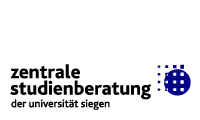Zentrale Studienberatung
im F-S Gebäude
Sandstraße 16-18
57072 Siegen
Erreichbarkeit der
studentischen Hotline:
0271 740-2712
Mo - Do: 9 - 16 Uhr
Fr: 9 - 12 Uhr
Mail:
info.studienberatung[at]
zsb.uni-siegen.de
Terminvereinbarung für eine Beratung über:
0271 740-2712
International Students
You find information about the admission procedure here:
STARTING
Impressum
Roads to Democracies – Historical and Contemporary Perspectives on Politics and Culture

| Admission | Prescribed period of study | Winter Semester | Summer Semester |
|---|---|---|---|
| yes | 4 | ✔ | (✔) |
Admission Procedure
as per statement below
| International, English Program |
|---|
| ✔ |
Study Program
The M.A. Roads to Democracies - Historical and Contemporary Perspectives on Politics and Culture is research-oriented, international and interdisciplinary. It is offered by the Department of History and Department of Social Sciences. Further partner universities are involved in student exchange. The program aims to provide students with analytical tools and theoretical knowledge that help to understand and explain the interrelation between institutional structures, political processes and the social and cultural foundations of democracy. The interdisciplinary curriculum focuses on political, economic, social, and cultural aspects of democratic ideas, institutions and structures both in and outside of Europe.
The language of instruction and examination is English.
Students may attend courses instructed in other languages in
the area of “Studium Generale” including transferable skills,
language courses and additional optional seminars. The Language
Centre at the University of Siegen offers free courses in
various different languages.
The M.A. program offers modules that cover the following
topics:
- Theories of Democracy
- Methods in History and Social Sciences
- Methodology and Methods
- Research Seminar
- Actors and Institutions in Historical and Contemporary Perspective
- Political Cultures and the Public Sphere: Past and Present
- Global and Transnational Processes: Past and Present
- Democracies in Comparative Perspective
- Thematic Module Abroad (Partner University)
Furthermore, students will be prepared for writing their M.A. Thesis through a Thesis Forum.
The completion of an internship (8 weeks) is compulsory within this program.
The Master’s program qualifies successful graduates to pursue a further academic qualification within doctoral studies/PhD studies and provides a good basis for responsible positions in international organisations and NGOs, international aid and development agencies, research institutions and institutes of higher education of the public and private sector, culture agencies and cultural heritage institutions, publishing houses, journalism and media agencies concerned with international and intercultural communication, political parties, associations, foundations, international and internationally operating companies.
Admission requirements
Admission to the Master's program requires a proof of a study-related special qualification. A study-related special qualification is ascertained when the submitted documents, in particular the transcript of records, the letter of motivation and the exposé show that the student has the ability to conduct independent scientific work and has the relevant methodological competencies that enable him/her to successfully complete the Master's program. The assessment of the study-related special qualification is part of the application procedure.
Admission requirements
- An above average first academic degree (Bachelor's degree or equivalent) in history, political science, sociology or in a related field of study with a final grade of at least "good" (local grade 2,5).
- A very good command of English (equivalent to Level C1 of the CEFR) documented by internationally recognised test certificates (e.g. IELTS, TOEFL, Cambridge certificate). In some cases students can be exempted from submitting a formal test certificate, e.g. when students have obtained a BA degree from a university where the language of instruction was English
Admission to the Master's program requires a proof of a study-related special qualification. A study-related special qualification is ascertained when the submitted documents, in particular the transcript of records, the letter of motivation and the exposé show that the student has the ability to conduct independent scientific work and has the relevant methodological competencies that enable him/her to successfully complete the Master's program. The assessment of the study-related special qualification is part of the application procedure.
Admission procedure / Application
Applicants need to submit the following documents:
- Letter of motivation (English, 750 to 1000 words with information about professional qualifications, personal motivation described from a professional-scientific perspective)
- Short CV in English (English)
- Certified copies of university degree certificates, transcripts of records and university entrance certificate
- Language certificates (e.g. TOEFL, IELTS, see website for further information)
- An exposé of research ideas for the applicant's potential Master's thesis of 2000 to 2500 words in English, which must meet scientific standardsand include references to the current state of research
- A letter of recommendation from a university professor in English
Please consult the program website for further information concerning the application procedure. The assessment of the study-related special qualification is part of the application procedure. It is based on the submitted application documents.
Internship
The study plan includes an internship.
Language
English
A very good command of English (equivalent to Level C1 of the Common European Framework) documented by internationally recognized test certificates (e.g. IELTS, TOEFL).
Study organization
Subject examination regulations including study plans and
module descriptions
The Framework Examination Regulations (RPO-M) and the general
subject-specific regulations of the subject examination
regulations (PHIL-FPO-M) define the general regulations of
studying in Siegen and at the Faculty of Arts and Humanities.
In addition, the subject examination regulations of the
individual (partial) degree programs (FPOs) define the basic
structures of a (partial) degree program (e.g. admission
requirements and content to be studied). The examination
regulations are accompanied by curricula, which represent the
recommended exemplary course of study in the individual
subjects, as well as module descriptions (content-related
information on modules). Students are automatically subject to
the current version of an FPO when they enroll for their first
semester.
Documents relevant to your studies


